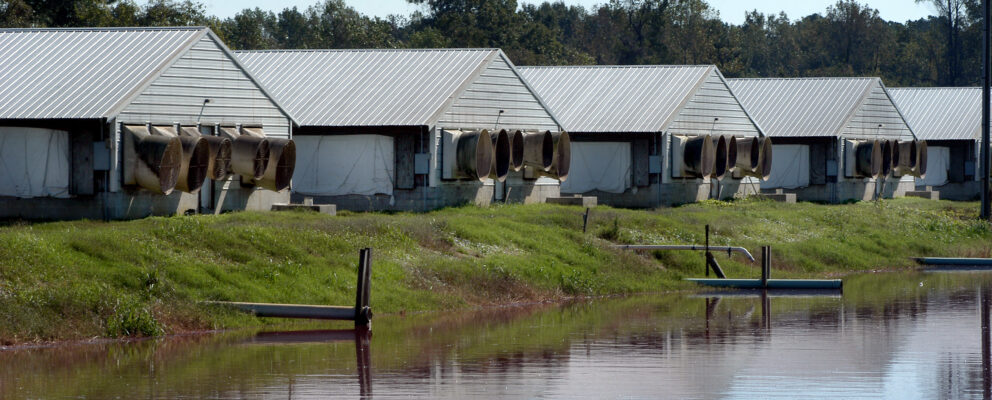North Carolina State University will receive a $268,342 grant to facilitate the development and adoption of sustainable manure processing technologies by evaluating environmental outcomes, logistical strategies and economic impacts of those technologies in the Cape Fear, Neuse, Lumber, Yadkin Pee Dee and Catawba basins.
Animal production impacts NC air, soil and water and continues to challenge efforts toward environmental quality improvement. As the second largest state in hog and turkey production, and the fourth in broiler production, North Carolina agriculture generates millions of tons of manure annually in a few concentrated regions of the state. Intensive swine and poultry production clustered in the coastal plains region poses a threat to air-water-soil quality and in turn to human health. This region’s vulnerability to hurricane and extreme rainfall events further increases this risk to the environment.
A notable effort to address swine-related impacts is the Agreement between NC Attorney General and Smithfield Foods in 2000 to develop and implement Environmental Superior Technologies (ESTs) to replace the swine lagoon-sprayfield system. This project, funded through the Smithfield Agreement, is a joint effort between researchers in NC State’s Biological and Agricultural Engineering and ARE to evaluate the potential adoption of ESTs to improve environmental health.
Eric Edwards, assistant professor and extension specialist, will evaluate current and future economic conditions affecting the adoption of best practices. Edwards explained that “political, market, and legal factors all interact to determine the adoption and cost of ESTs. Our project takes a holistic approach to evaluating the revenues and costs of processing and recycling manure in North Carolina with the goal of finding cost-effective methods of reducing the environmental burden of animal production.”
“This research will help ensure that our agricultural technologies and practices help keep our environment safe in the long term,” said Attorney General Josh Stein. “This grant will help ensure that we safeguard agriculture while we protect water and air quality.”
“This two-year project will identify optimal manure processing and end-product/technology combinations to improve manure use efficiency and reduce its adverse impacts on North Carolina air, water and soil resources,” stated Mahmoud Sharara, assistant professor and principal investigator on the project with NC State. “This framework will build on technical insights gained from pilot-scale assessments through the Smithfield Agreement and advances made in manure processing technologies, modeling and simulation capabilities since the initial agreement. The framework will also enhance our understanding of market development and economies of scale impacts on technology adoption.”
